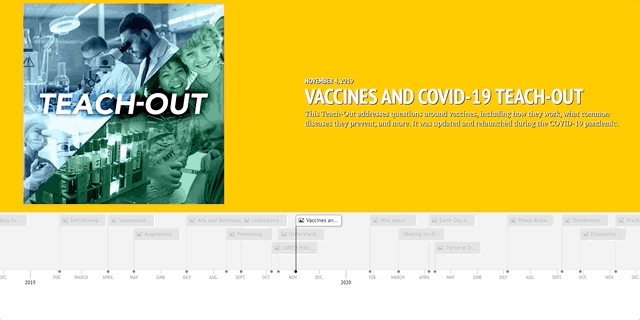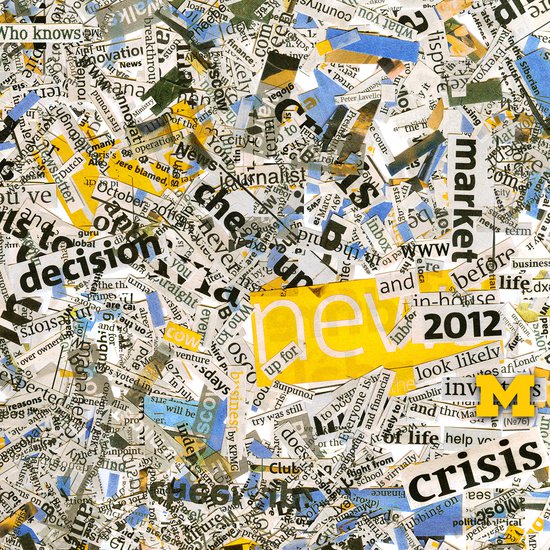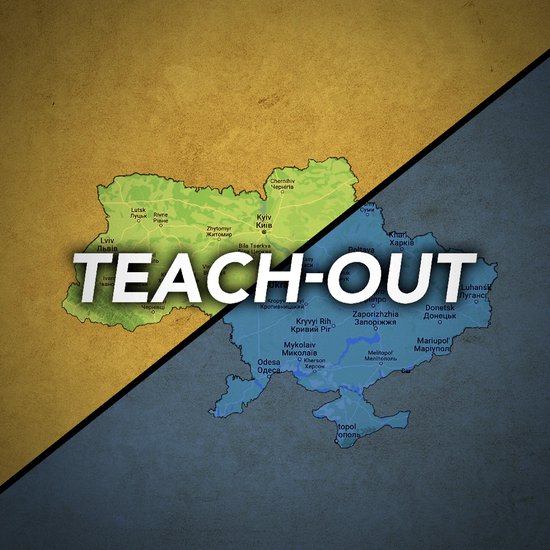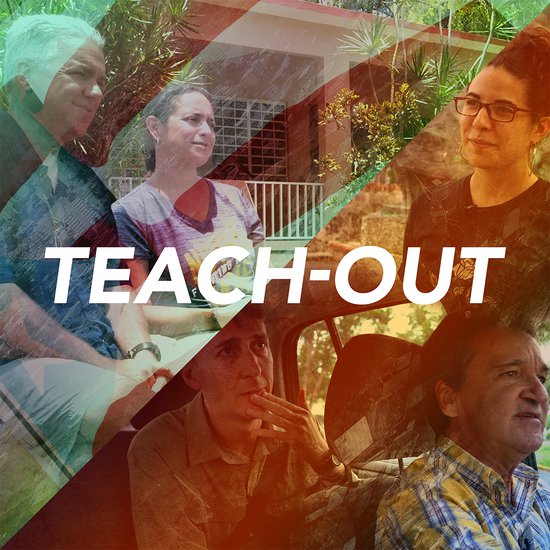
Celebrating 5 Years of Teach-Outs
More than 45 Teach-Outs have led global conversations about climate change, social justice, emerging technologies, and more.
On March 24, 1965, hundreds of faculty and students came together to learn with and from each other about events taking place in Southeast Asia. Through a 12-hour-long learning event, the first Teach-In was formed. The day of learning captured national attention and quickly gained traction on more than 35 university campuses.
The University of Michigan Teach-Out Series™ was born from that spirit in March 2017 with the launch of the first Teach-Outs exploring a growing shift from democratic to authoritarian rule, how to best communicate about and understand scientific research, the future of the Affordable Care Act, and how to identify “fake news.”
In the five years since, the University of Michigan has released more than 45 Teach-Outs, bringing together a global community of learners to discuss issues of the most significant societal relevance and urgency. Always free, always discussion-based, and always time-bound, more than 7 universities have adopted the Teach-Out model and produced their own Teach-Outs, evolving this new mode of teaching and engagement.
Topics have explored a wide range of important issues like free speech, police brutality, international refugees, COVID-19, gun violence, gerrymandering, and climate change. We’ve also sought to unpack rarely-explored topics of significant social interest like UFOs, Esports, self-driving cars, sleep deprivation, and cryptocurrency.
As we celebrate this milestone in the University of Michigan Teach-Out Series, we invite you to explore full Teach-Out archives from across the series on Michigan Online.
View an interactive timeline of the last five years of global conversations in the Teach-Out series. View timeline >>

Let’s also look back at the origins of the series, Teach-Outs developed in response to developing world events, and some of the most popular and extensive conversations from the last five years.
















